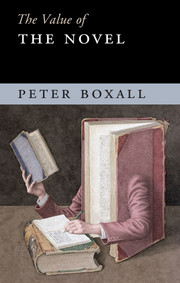3 - The Novel Body
from Part II - Matter
Published online by Cambridge University Press: 05 September 2015
Summary
Oh! How immaterial are all materials! What things real are there, but imponderable thoughts?
Herman Melville, Moby DickI began to perceive more deeply than it has ever yet been stated, the trembling immateriality, the mist-like transience, of this seemingly so solid body in which we walk attired.
Robert Louis Stevenson, The Strange Case of Dr Jekyll and Mr HydeThe opening of Samuel Beckett's excruciatingly condensed late work, Worstward Ho, gives perhaps the most succinct definition we have of what it is that the novel does. The narrator begins by instructing himself on what he must do in order to begin. ‘Say a body’, he says (commanding himself and obeying the command in the same breath). ‘Say a body. Where none… A place. Where none. For the body. To be in.’
These are the essentials of the fictional scenario. ‘That’, as the narrator puts it, ‘at least’. In making fictions, we propose bodies taking up spaces, in the full knowledge that these bodies and these spaces do not exist. The defining feature of a novel body is its non-existence, its special talent for not being. As Theodor Adorno puts it, everything that happens in a novel, every element of its material texture, is defined and shaped by this fundamental property. ‘Even an ordinary “was”’, he writes, ‘in a report of something that was not, acquires a new formal quality from the fact that it was not so’. Or as Elizabeth Bowen writes, with a succinctness that echoes Beckett's, ‘The novel lies, in saying something happened, that did not’. To populate a fictional space with fictional bodies is to perform an act of engendering, of progeneration, which is also and at the same time the overseeing of a general extinction. The novelist imagines multitudes but he or she is also, to quote the French title of Beckett's late work The Lost Ones, a ‘dépeupleur’, a depeopler. As Thomas Bernhard's narrator says of his own narrative, in Bernhard's exquisitely comic novel Extinction, ‘the sole purpose of my account will be to extinguish what it describes’.
- Type
- Chapter
- Information
- The Value of the Novel , pp. 71 - 92Publisher: Cambridge University PressPrint publication year: 2015



